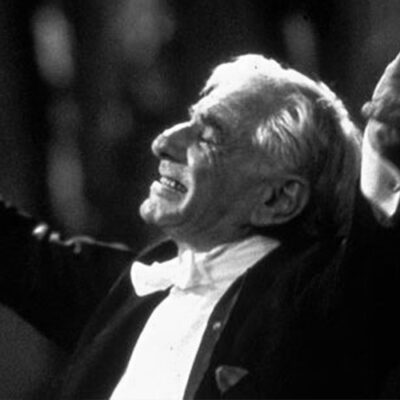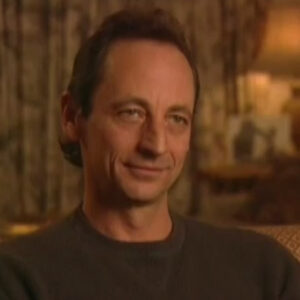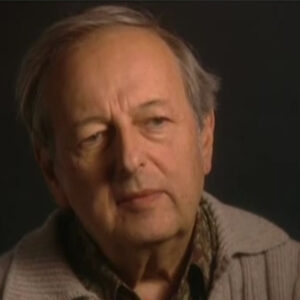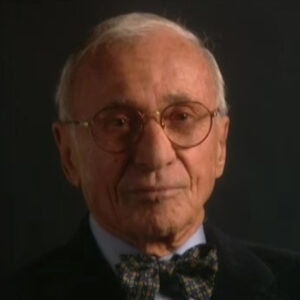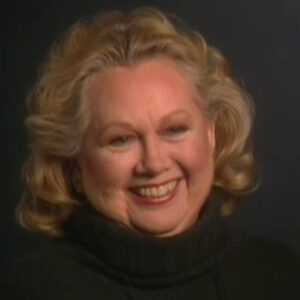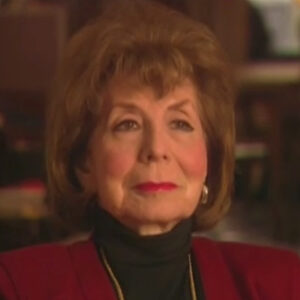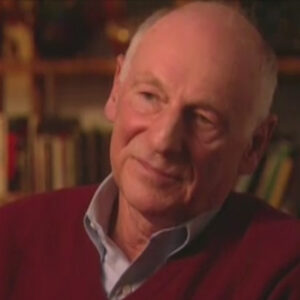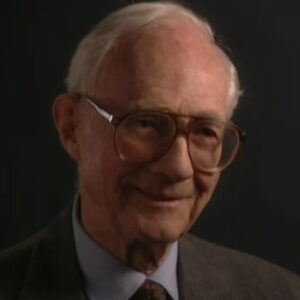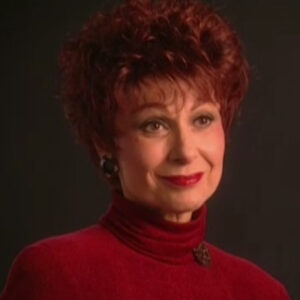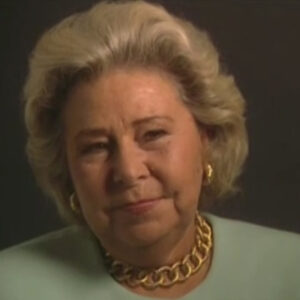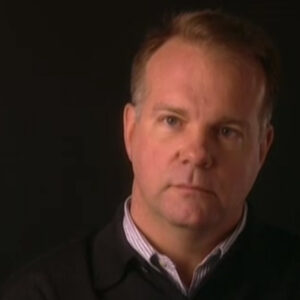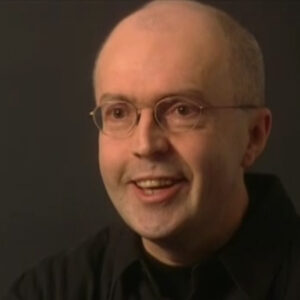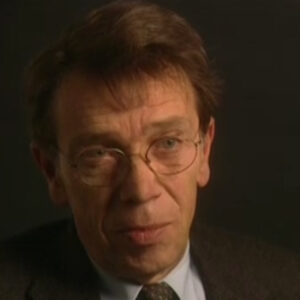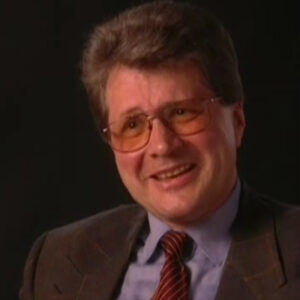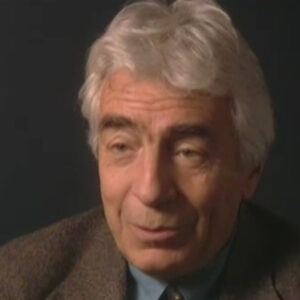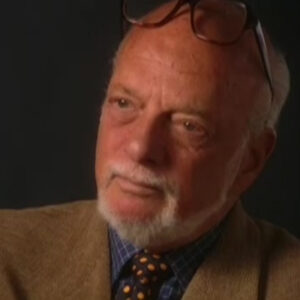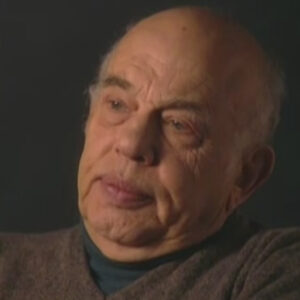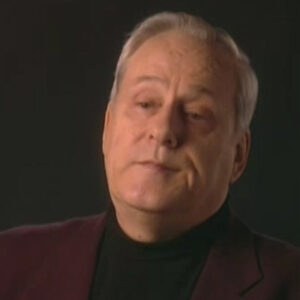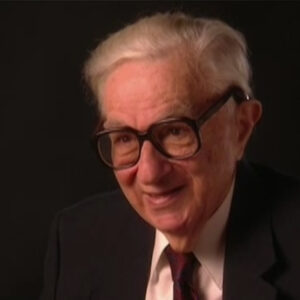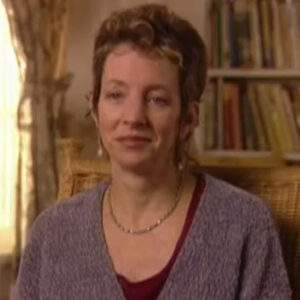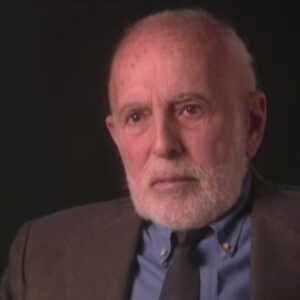Speaker Well, in the in the summer of 1937, I believe it was after I spent many, several useful years of total unemployment and despair. A friend of mine who was a dramatic counselor at a place called Camp Anota in Pittsfield, Massachusetts, and as a good friend, he said, listen, I can get you up there for free for two weeks if you play the Pirate King in the Pirates of Penzance. I said, thank you. I’d love to do it. You bet. And then he told me about the Music Council. I was a young fellow, about 18 and so called Leonard Bernstein. And my friend said that he was a great musical genius. I said to myself, I have my doubts if my friend thinks he is. And on the other hand, Leonard had been told about me having some kind of genius of some sort and that having a great memory for music of all kinds of symphonic music of all kinds.
Speaker And he doubted whether I really did have that gift. At any rate, I met Leonard one night when I was driven up there by some parents camp, and I met this boy who looked about 11 or 12 years old, and he this was Leonard. And he he dragged me into the mess hall and instantly where there was a piano. And he said to me, So you know a lot about music. I don’t know. You have a great guy. I said, I’d like you to hear this this prelude of Shostakovich. I’m sure you know it quite well. I said, I’m not sure. Then Leonard played at the place about a five minute musical offering.
Speaker It was brilliant, but I didn’t remember having heard it.
Speaker He said, well, you know that Shostakovich, please, don’t you? I just said, gee, I’ve never heard before. At which point he sprang from the piano, threw his arms around me because I was the first person that he hadn’t said, of course I know her. And actually it was a piece of Leonard’s a little thing he had written some months before. And and so we really were, you know, fairly excited about meeting each other. We became instant friends at night, spent the whole night wandering, singing symphonic bits. And I seem to know just about everything that Leonard really know as a musician, since I know nothing about music. Technically, at any rate, we became great friends and it started that very evening and it seems to have gone on ever since one way or another.
Speaker Well.
Speaker I think that about covers that there’s a cover. I know well enough, I said in our check, I don’t know. Good, good, good.
Speaker Did you have me there?
Speaker I described we did this.
Speaker Oh, let me explain why we’re having to. Yes, go ahead. We have to do it for cutting purposes. Yes. Enough shots of you. Separate and right. Sometimes we have shots. Very. But we’re hearing you right. I understand. I understand the easier to get some of the stories again. And then I have options. I have you are very happy together. OK, got gotcha. So I’m and I’m asking you to say some things you’ve already said and I really understand.
Speaker So to tell once again the story of hearing Lenny’s debut when he substituted for Bruno. Walter.
Speaker Oh.
Speaker Well, Betty and Judy and I, I that the viewers were more or less stranded on the West Coast, were all totally unemployed at the time and ready, and we are living in some rather peculiar little apartment near Wilshire Boulevard. It was totally depressing. And then one Sunday disconsolately, we turned on the Radio Philharmonic time and I knew that that Bruno Walter was conducting that afternoon. And we tune in and listen for a while. And I said something, some instinct grabbed hold and I said, gee, it’s it’s wonderful, but it doesn’t sound. Does it sound like Bruno? Walter sounds like a completely different person, a different kind of energy.
Speaker And we kept listening. It was discussed Don Quixote. And at the finish we heard the audience cheering and applauding. And the announcer said, you have just heard the debut conducting concert by a young Leonard Bernstein, the assistant conductor of the Philharmonic. We went mad. You know, we really were dancing around the room and and not knowing what to do.
Speaker In fact, I did not know until I saw Leonard some months later in New York when I stayed at his apartment for a number of weeks. And that that was a great moment, only frustrating because we couldn’t be there to hug him in person.
Speaker Thank you. Is that is that cover anything?
Speaker Yeah, yeah, uh, you know, what do you know much about the Lennie’s years with the New York City Symphony?
Speaker You know, a certain amount.
Speaker Could you talk a little bit about that? Because I don’t have anybody talking. OK. Um, that he became I think Koussevitzky was instrumental in getting him the job as the conductor of the city. I’ve forgotten.
Speaker So maybe you could just say Lenny became the mayor of New York.
Speaker Yeah. Yeah.
Speaker OK, that was that was that, of course, was before the Philharmonic and actually before he conducted by, uh.
Speaker Can you just tell me that story?
Speaker I have that story well, out of the year, I believe, was in the. Amount of sometime between 48, 47 and 49 somewhere in that area, and Leonard became a conductor, possibly through Koussevitzky, he got appointed to conduct an orchestra. The New York City Symphony Orchestra, which was a very fine orchestra, made up with many young musicians, led to some wonderful concerts. One I’ll never forget was there was a Bartok piece for Celestine and and timpani and strings of that glorious work. I hadn’t really hadn’t been heard much from in New York. And I was at that time was it seemed to be just something made for young people to play with fire and passion and it’s lyricism and and then it to many other pieces where it had several seasons. And it was a I think a very full time because it didn’t have any orchestra at the moment. There was his first and I think he was well on his way to the Philharmonic and to many other things, including continuing theater composing. That’s about all I remember of that period, except being that is of any value.
Speaker Yes, absolutely.
Speaker Um, do you remember the circumstances?
Speaker Do you remember the circumstances of Lenny’s leaving the New York Philharmonic right before fancy free, right before fancy free and leading the Philharmonic?
Speaker He resigned. He resigned daily.
Speaker I have no recollection of that early, this was, you know, obviously before he wasn’t he wasn’t getting along with Rojansky who was quite jealous.
Speaker You don’t know that that well.
Speaker Yes, but I’m not up on dates, but I didn’t think he had quit because he was conducting the Philharmonic all over the place for for the rest of the year.
Speaker So I don’t quite understand why he resigned while he was in the job, while he was working on Fancy Free.
Speaker Yeah, but then he resigned and I think two months later, the premier has premier who doesn’t have a little story that I know. Did he ever talk to you about why he was resigning, whatever point? I didn’t know he resigned, but he was conducting the Philharmonic later that year.
Speaker Well, they brought him back now, now and then he went on a tour of several weeks with.
Speaker There’s nothing now and then it’s about as a whole whole road tour of quite a number of concerts, so I’m a little startled. I don’t know about him Orchestre, then.
Speaker Huh, huh? He does.
Speaker He did leave the Orchestre, why was he does it premiers Jeremiah?
Speaker Yes, right after the debut.
Speaker And Rochinski was quite jealous, didn’t want him to go to Pittsburgh where it was having its premiere. Uh huh. And it became fairly clear to him that he would have to leave. And he’s going to have a composing career as we left in that Jerry Robbins. And he started defensively. Hmm. I actually think he was still working on this, was working on fancy free while he was still there. But then he resigned and then he took the New York City job.
Speaker Then he took the New York City Symphony.
Speaker And, oh, you know what? You could tell me that that was New York City Symphony, that he succeeded Leopold Tarkowski.
Speaker Oh, yeah. In that job. Yeah. In the New York City Symphony, I’d say he succeeded Leopold Stokowski of Fantasia fame.
Speaker Oh, that sounds fantastic. Absolutely.
Speaker Me that I think that part of that he was succeeding a very famous conductor when he took over the New York.
Speaker Yeah.
Speaker What do I say? I just I have to name the orchestra again. He succeeded the post of conductor of the New York City Symphony following the resignation of Leopold Tarkowski, great conductor of the Philadelphia Symphony, and as well as conducting Fantasia for the Disney company.
Speaker I actually don’t know if he’d already done that, but I think he and I have had, um.
Speaker That’s great. What is it that you most remember about the collaboration now and the on the town? I’m a journalist. Remember about the collaboration with Lenny.
Speaker Nothing. Nothing but fancy free.
Speaker Well actually he told about that free.
Speaker But if you’d like to say something, what I would like you to tell me is that when he dedicated the show to you fancy free, you just tell me that my money dedicated fancy free to me.
Speaker Well, sure, I can make a sentence or so long if you don’t mind. Do. I went backstage at the opening night of fancifully, just bewildered. Happy to be hearing it, thrilled to hearing the premiere. Listen, I met the conductor and told Dorothy, who was dropping off that evening and who said to me, you should be very excited. I said, Why? He said, because why don’t you know Leonard has dedicated fancy free to you. This was in disbelief. I my head was swimming with joy and excitement. It was that was it. That was a great second to in my life that lifted my spirits very high at a moment when I needed to be lifted desperately.
Speaker And that what is it you must remember about fancy, very fancy, free? What is it? You imagine that?
Speaker I remember the entire ballet backwards and forwards are finally free, I just I can’t ever forget that very opening night of the the audience excitement at seeing and hearing something so fresh and new and as a ballet totally had a whole new American relaxed, youthful and worldly spirit. It was just a knockout and buy 22 curtain calls at the end. And I knew that that Leonard had really done it. And as well as Jerome Robbins, I was a great ballet. And it is it still in any repertoire you can lay your hands on anywhere?
Speaker What was the hardest on the town evolved out of dancing.
Speaker Well, after fancy free, Benny Camden and I were in New York a very unemployed and wondering whether to go back to the coast or not.
Speaker And now we somehow decided to check it out there, especially since, well, we learned that people were seeking the services are Leonard and Jerome Robbins and a musical sensation. I want to write a whole show and and they and well, Leonard suggested he and me to write the book and lyrics and look pretty happy about it.
Speaker But nobody nobody knew us of the show and by by justice, just by chance and to make a living. Barry and I went back to our place we worked at for many years ago, called the Blue Angel, a lovely little club, and said, think we can go on as two? And the owner, a man named Max, said, of course. So he performed us to do all act pretty nicely. And and Leonard managed to bring the producers, Alice Smith and Paul Saige and anyone and Jerry, who had never seen us and other people to watch us at work. They were capable of writing the lyrics and put on a show, and they all agreed to give us a chance to do it, which is what happened and indeed with a few ups and downs in the following months. We managed to bring it off and appear and on the town as well.
Speaker Thank you.
Speaker My next number. Oh, that’s right. Pretty clumsily.
Speaker What was unique about on the town? Why what was unique about all the town in view of what what else was on Broadway at that time? Oh.
Speaker Well, what seemed unique about the town at that moment was a well, a the surprise of it happening. We got the Shubert Organization at that point, booked the show and into a theater called the Adelphi, which was sort of known as the funeral parlor of musical theater because nothing had ever succeeded there. And and so there we went. And a director was George Albert, who was scarcely a kid, but a terrific, wonderful, wonderful man. And we had a full 10 days out of town, which we thought was great. It was no time at all during which he made many changes that opened in New York on the opening night of just the show, seemed to catch fire from the first moment. And it had, I know now a freshness and vitality and and a strange combination of being a young people’s show with poignancy in built out of sailors on leave for just 24 hours and and during war time and. And with all of this lighthearted Roussos, that was then a new kind of music that Leonard had written for the songs and ballet music. Nothing wrong with that kind of vitality and and fullness and had ever been heard in the musical theater. And I don’t think that’s been heard that way since, because I think anyone could have written or can write the the serious music, the dance value of a show it hasn’t written since except by Leonard in West Side Story and Candy. And that was part of it as a freshness plus an intelligence, worldliness, innocence all at the same time. I think that about doesn’t sum it up.
Speaker Let me talk to you about his hope. To that that work he was doing, what he was trying to do was to create a new kind of American musical theater that would move more towards a different kind of opera. Did you ever talk to you about that?
Speaker Well, Leo.
Speaker Well, a little island always was the hint of writing that. That other shows will work and will add up to more than just frivolous musical theater would be works that lean towards the kind of American opera which Alina always wanted to write and I guess in a way achieved that with every one, the shows. That’s all that was supposed to be musical comedies. They were, but they carried a kind of a Robin serious undertone that that that made it much more than a comedy or some other form of theater that approach kopra. And that’s all I can remember about it outside of being there.
Speaker Yeah, what was your when you first saw West Side Story? What was.
Speaker We saw West Side Story, first response of Barry and myself was to kick ourselves, apparently because Leonard had approached us first about writing the book and lyrics.
Speaker He approached us both on that and candid, both of which we turned down mainly because we’re working on a movie or other and we just sort of up to our ears and obviously not thinking because we passed up some very rewarding potential moments in our lives and careers.
Speaker I don’t know what else to say on the subject. Well, I believe it. Did you did you real I mean, what was your musical response to West Side Story?
Speaker Are you completely blown away as far being. I was in the musical aspects of West Side Story were so extraordinary and they didn’t blow me away. I knew I’d never heard. It’s it’s a warlord style in the theater except for certain aspects of on the town.
Speaker But no, I thought I thought that it was something new, special and brilliant and that it was it was it was going to last. So I had a dangerous theme to become almost an opera and ballet combined. And it’s been a show about inarticulate young people trying to find themselves in the world and ending up as a Romeo and Juliet tale. I think tremendous work had been achieved.
Speaker Nothing like that before or since either. Yeah.
Speaker Talk about George Abbott and the story of you and Betty and Lenny going to him when you were how he felt about the book and some of the changes he wanted to make and how you went and marched into his office and said, Elsie, er oh, you know, that’s what I came a little a few weeks later.
Speaker So I go into the whole thing and we’ll just begin with George George out. And he loved our book. Yes. And.
Speaker So George Abbott will be by now. Yes, crazy about a patriarchal figure like ours, a mythical, heroic look about them.
Speaker Well, George, I would love to love young people, love musical theater. There he was.
Speaker He loved the book, except that in Ireland, he decided one thing about the one thing Abbott had crossed out was a prelude and epilogue that we had written that we felt held the show together and justified its entire existence and without it would be meaningless. So he stormed into Abbott’s office and and very friendly, said, look, George, we we’ve got to have that prologue and epilogue. It’s it’s a but it justifies the entire show and we can’t do without it. And Abbott said, OK, that’s fine. I’ll give you a proposition. Either way, you cut out the prologue and I cut out me. I’ll have to leave. And he said, oh, and at that moment we knew the prologue and epilogue was out. And as we walk down, it was Radio City towards the fountain, the three of us ready in landing. I was just feeling exhilarated and alive. It was early fall in. The air was tingling and we felt, wow, we’re doing it.
Speaker Period. Thank you. Yeah. Did you know that that you did you know when you were doing on the town that you were doing something that you were kind of pioneering?
Speaker We when we get on the tambourine on most of the time, were, in a sense, poor relatives. And what we were trying to do is somehow create a book and survive. But we were all all the all of us and the grandpa, we knew what we were trying to do as a as a show which aired the book and lyrics and music were.
Speaker A union of one continuous theatrical event, and it wasn’t seen, and then some song which might be even extraneous, we wanted think to flow with with the music, song and book, all being part of the same evening, the same story and that kind of unification, very same four years, a declaration of principles that we all believed in, that our show should be about the unity of theater in all its forms and.
Speaker That’s more or less what we were after. I described the opening night of the opening night of as I was was only I was we’ve had, I believe, two nights of previews. And it was the opening night we were.
Speaker We were rather on the edge, quite nervous, but Betty and I were performing in the shower play, I played one of the sailors and that he was Clair de Lune and we had met up and we met up at the Museum of Natural History.
Speaker That’s how our star story began. At any rate, the show we went brilliantly. That performance, it was just terrific. Betty and I and the museum scene lost one little laugh.
Speaker And that was all we could think of.
Speaker But, you know, at the end of the show, all we could say to each other, we missed that laugh. And then we have to realize the show had gone marvelously, but just by a billionth of an inch, fail to get to us because we’d had our own personal frustration and feeling of failure after losing one chuckle. But it was it was glorious backstage. It was just wonderful. People poured on the stage from the audience. They didn’t go around any stage. I just came right up.
Speaker And that included many folk of the world of theater and literature. And I remember clearly Oscar Hammerstein coming over so badly of me and and saying especially how he loved one song some other time.
Speaker It was great. And he just thought that our work was was brilliant.
Speaker It was just he was wildly complimentary.
Speaker And that’s that’s a moment I remember on stage that night. And actually there was no cast party of any sort. We just sort of drifted off in clumps. And and and then before the night was, obviously he had seen several of the biggest notices. And except for a sour one, once we felt we felt great and we had a matinee coming up the next day and that felt good. So how long and on the town run, remember how long and the run? Wasn’t that as long as it should have been? I think it only ran about, oh, about a year and a half. And then the producers decided to send it on the road, though I think it could have played some considerably longer in New York, but suddenly feel they would felt they would oh, they would clean up on the road with the fame of the show, having reached them collaborating with Lenny.
Speaker Yes, it’s a process of collaboration.
Speaker Well, collaborating with Lenny was, of course, a tremendous experience. And and he and I and Danny were already really good friends of a number of years. And at first we were a little bit, I think, shy working with them, not knowing if we any way equal the energy and excitement of his music. And and and somewhere along the middle of our work, we suddenly felt we could. And we wrote several ballads rapidly, the way Michelle and Lenny had been on on the tour while he was setting his music. So the lyrics was music. And he returned and nervously sang him the words. And he was sitting there looking very impressive, but he was very professorial and doubtful and and but he lit up so that great. And we we felt we were at last end and and won. And some numbers we worked on together carried away. We evolved over a period of days when he played a theme and sprightly theme and major key were carried away. And we amongst us, we decided to put it into more of a minor key, a slightly sad and tragic and. Serious form, and it worked very well and I can’t recall any other, but we were always together and it got more and more relaxed as we went along, being inhibited and shy. And everybody suddenly started getting very improvisational. And we all gave unselfconsciously the three of us to the project. And it worked.
Speaker And you would have liked to have gone on and on another collaboration.
Speaker What happened with what we were so anxious to get into the next show with him instantly, among other things, to prove to ourselves that it wasn’t just an accident, that we could write it on the show and it had to be with Leonard. And Leonard wanted to go to the next show with us. But Serge Koussevitzky is his great mentor. I was a great conductor, told him not to go any more of these frivolous things for many years just to write serious music and conduct.
Speaker And so Leonard reluctantly and turned turned us down for the next challenge, made us very unhappy for the moment. And we went to another composer with our with our story IJA, Martin Gould, and we went on working where in fact we had our first a sort of run through of it and about the fourth week of rehearsal. And we had several people to come and watch it. And one of them was Lenny at the end of the run. So I said, you know, I should have written that show. He said a little bit defensively that we talked about, but we were happy that he felt that way. I’m very frustrated that he hadn’t really. What was the next circumstance of your being able to work together? Well, quite a few years went by and then. In the summer, the beginnings of near the end of 19, I guess sort of 1952, we got together with George Abbott in the process of our show that he was going to direct based on the play, my sister Eileen and.
Speaker And well, we decided to try to do the score and we were looking for a composer and among other people, Leonard, who was just back from his honeymoon with Felicia and we mentioned him, I was sure he’d never want to do it. I said go over and ask him.
Speaker And my amazement, he almost immediately said yes. And we were staggered and thrilled.
Speaker And and got to work immediately on what became wonderful town and we worked that worked on that show about one month, that the entire score as we had to do it for the star, Rosalind Russell, or else we would lose her and to some other projects. And we we we pulled it off. And that was a wonderful, happy experience for an audience who may not know, like Diva didn’t know who Rosalind Russell was.
Speaker Maybe you could just say Rosalind Russell was one of the biggest stars in Hollywood.
Speaker Russell Russell was indeed one of the biggest stars in Hollywood, in her own way, a great American Beauty, but also a comedienne, a real comedienne, loose limbed and and able to make a burlesque of herself. And the occasion was needed. And she wanted to do a musical. And well and wonderful time finally opened. And she was marvelous. And on the stage, it was her first real stage appearance in a starring role. Certainly she had been around there many years before, but no one had ever heard of that. But this one, she scored just marvelously. And what we were after worked. It came off.
Speaker She was on MTV and yet she. Oh, no, no. That came after. Yeah. I’m sorry. I didn’t mention that.
Speaker I just thought that she was a huge star from Hollywood is the only one. Yes. Yes, yes.
Speaker And that’s why it was so important to have a big show. Right. Right. Well, it wasn’t important that there was no project put out. I was proud of. Yeah.
Speaker So you did this in five weeks. I want to ask you a question to what do I know that the play exists, but in creating the lyrics and finding the book for the stage, how to what degree did you draw on your own experiences as young people’s lives and experiences of Lenny, struggling people in your life?
Speaker And to what degree you how did how did your own experiences play into wonderful and wonderful town?
Speaker Nothing was directly based on ah ah. Nothing was directly based on our own experiences in Greenwich Village. As Beginners sent me, Lenny hadn’t been with us. He was a Boston student. But had we managed somehow to, I think, create the feeling of young people eager to make it and in the big city, which somehow reflected some of our experiences, disappointments and and triumphs and fun. There were some relationships were not very consciously about you and Lenny.
Speaker Did you and Lenny share an apartment in Greenwich Village at one time?
Speaker We asked for that was many years before. That was in the summer of 1939 when I just graduated from from Harvard. And and I was very anxious for him to see our act reviewers at the Village Vanguard in Greenwich Village. And when he came down, I was just absolutely bowled over by it. I was thrilled. Oh, well, I ran into the last remember every lyric that was written then my second, much more than we did. And then we also that summer, we shared a little apartment in the village, maybe West 10th Street, I’m not quite sure. And that was just for the summer and and the wildest of summer heat. And it was I must say, it was a very careful and fastidious occupants of the apartment, but somehow got through and. And then when went back to Boston for a while, then came to New York and held a little of I didn’t come back for a couple of years, he was up in Boston trying to teach up very little studio and that didn’t work.
Speaker And then a couple of years later, he opened this little studio and 50 first 50 seconds created. And that didn’t work very well either. And so there he went down to Curtis in Philadelphia, getting there. Everything worked when he came.
Speaker When he finished with Curtis. Yes. When he was at sixes and sevens trying to decide what to do with his life.
Speaker He then moved to New York again. Yeah.
Speaker And started trying to make it in New York. And he did a whole lot of things. And that would surprise people.
Speaker He was a dance rehearsal pianist. Oh, yes. Well, now let me play for you guys in the clubs.
Speaker And we did a recording with Leonard of her original little opera called The Girl with Two Left Feet. And we recorded it. It was five, six, seven, eight discs. And Leonard was our confidence that a great job, he helped pull it together and lead. And to this day, no one has ever purchased that album. No, it was it was a lot of fun, actually. The girl with the two left feet. And that was only Leonard’s only that’s not true. It wasn’t his only appearance was because we also did some pioneer work. And in television we appeared as a we were several times on Saturday evenings doing a half hour or an hour show, and Leonard accompanied us several times. And that was our other experience as a review as well.
Speaker So I love just a little bit about Lenny’s job with that. Never mind. OK, what’s your favorite song, by the way, in that?
Speaker And Wonderful and wonderful town, I, I like your favorite song on the town, which is some other time. A song that we know we’re very proud of these sailors.
Speaker Is it will it will somehow it will live on its own, real as a song, a really wonderful quality, and we loved almost everything that we wrote in Wonderful Town. I don’t know if there was one particular song that that we felt. Was it like all that we did on it? I cannot remember. Hmm hmm.
Speaker Raslan got a great matériel song that we she sang an act on called 100 Easy Ways to Lose a Man, which as a girl was whoo hoo man. Laughs quickly because she was rather sharp and curious and smarter than most man she was with. And she and she rather better lady sings this song, how she’s managed to lose them all the time and time again to a lesson. These days, she’s teaching girls how to achieve the failure that she has achieved.
Speaker That’s a good number that Lenny’s sense of theater and how you first became aware of it. And you could make just a reference to the fact that he had done a student production of Cradle Will Rock that you had heard about. And that didn’t surprise you that he was going to have a career in theater?
Speaker Three words in your mouth. But I think it. Have I told a story before?
Speaker Well, you told about hearing about The Cradle Will Rock, but I would like you just to put the just preface the fact that Lenny exhibited a tremendous sense of theater early on show and with the camp shows he was putting on. And that you hear and it’s it’s when we get into town, it’s what I like to make a flashback to the fact that this wasn’t Lenny’s first experience. Yeah. I saw that he had done these camp shows you one of them with him. That was amazing production. Cradle Will Rock. So it didn’t surprise you that you found yourself working together, Lenny?
Speaker No, it was never any aspect of music that wasn’t part of Lennon’s equipment, part of it is his blood and enthusiasm and knowledge. And they went from, you know, the deepest, most serious music to musical theater. I mean, he knew I was surprised at all how many popular scores he knew. And and so this entered into all his work while he was in school, did a production of A Cradle Will Rock by Marquis Side, which is no, it was a difficult sell to deal with Leonard the piano the whole time, but it was a brilliant production of a school. And so he always longed to be and was part of theatre as a young kid. I mean, he told me he had a he had directed a production of Carmen. What it was must have been about, you know, 14 years old. And he was so and it was a big success. And I believe his sister Shirley played the leading role of Carmen herself and he always spoke about with great fondness and production. So that was along with every other aspect of music in his blood and at his command. He was he was sure of himself not in and obviously got in a bad way in herself to see what was really creative knowledge of what theatre and theatre music should be about.
Speaker Oh, that was very good. You mentioned that you had been down one production with him. We both were very young in camp counselors.
Speaker I had done. And you played the pirate? Yeah. Yeah.
Speaker Yes, up there. I was up at Camp Anota as I had no designation, I was there for two weeks now visiting, visiting the star, and I got involved with Leonard, who was sort of pianist and coordinator for a production of The Pirates of Penzance, which was done with a large cast and junior and senior intermediate camp and myself as the pirate king. I had a great time and Leonard was there at the piano every second was the orchestral director, and he obviously had a great time, as did I, the one confusing lower than it was the end of the show. We want to watch what the cast do and what it’s like to do a general dance. Well, and that general that was badland, just kids jumping up and down and almost telling the world to bits. And we felt that should have had more careful staging.
Speaker Did you do you have any memories of your time in Hollywood with Lenny or did he ever talk to you about how he felt about scoring the On the waterfront, how he felt about it?
Speaker I’m curious about why he didn’t do more movies.
Speaker Oh, well, Leonard didn’t really want to do movies scores at all, except he he was urged, I think, by Elia Kazan to look at the rough cut, a picture of just films like Marlon Brando called On the Waterfront that sat there by himself in a project and a little room. And he found himself crying at Brando’s performance and thrilled by it. And he said, well, he felt he had to do it, which is how it came about. And he did a marvelous score. I loved that score. And in fact, Leonard finally made a sort of concert of it, which he still which he did from time to time, many years to come. Very beautiful. Yeah, I think so, I have loved it. Yeah.

